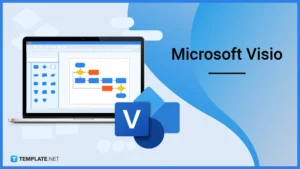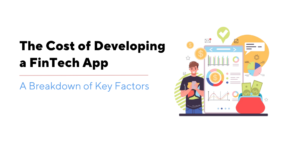How to Streamline Financial Management with Accounting Software
- 1 What is Accounting Software?
- 2 Streamline Financial Management with Accounting Software
- 2.1 Cloud-Based Accessibility
- 2.2 Automation and AI Integration
- 2.3 Enhanced Security Measures
- 2.4 Scalability for Growing Businesses
- 2.5 User-Friendly Interfaces
- 2.6 Integration with Other Business Systems
- 2.7 Cloud-Based Solutions
- 2.8 Artificial Intelligence (AI) Integration
- 2.9 Automation of Routine Tasks
- 2.10 Enhanced Security Measures
- 2.11 User-Friendly Interfaces
- 2.12 Tailored for Small Businesses
- 2.13 Interconnected Business Systems
- 2.14 Real-Time Reporting
- 2.15 Adaptability to Changing Regulations
Cloud Accounting has played a pivotal role in revolutionizing how businesses handle their financial data. As we step into 2024, let’s explore what it is and how it has evolved to meet the dynamic needs of modern enterprises.
What is Accounting Software?
Accounting software is a digital tool designed to streamline and automate various financial tasks, from basic bookkeeping to complex financial analysis. It allows businesses to record transactions, manage invoices, track expenses, and generate financial reports accurately and quickly. Accounting software serves as the digital backbone for financial management, providing a centralized platform for all monetary transactions.
Streamline Financial Management with Accounting Software

Cloud-Based Accessibility
In 2024, cloud technology has become integral to accounting software. Cloud-based solutions offer real-time data access, allowing users to collaborate seamlessly from different locations. This accessibility enhances flexibility and ensures stakeholders can connect to financial data anytime.
Automation and AI Integration
Automation has become a hallmark feature of modern accounting software. Repetitive and time-consuming tasks such as data entry, invoice generation, and reconciliation are now automated, reducing the risk of errors and freeing up valuable time for finance professionals. Integration with artificial intelligence (AI) further enhances the software’s ability to analyze financial trends and provide insightful predictions.
Enhanced Security Measures
With an increasing emphasis on cybersecurity, accounting software 2024 incorporates robust security measures to protect sensitive financial data. Advanced encryption, multi-factor authentication, and secure cloud storage help safeguard information from unauthorized access, ensuring the confidentiality and integrity of financial records.
Scalability for Growing Businesses
Accounting software is designed to scale alongside businesses. Whether a company is a startup or an established enterprise, modern accounting solutions can adapt to changing requirements. This scalability ensures that the software remains valuable as the business expands and its financial needs evolve.
User-Friendly Interfaces
The user interfaces have evolved to be more intuitive and user-friendly. Businesses no longer need dedicated IT staff to navigate complex financial tools. The focus is on providing a seamless experience for users with varying financial expertise, allowing them to leverage the software effectively.
Integration with Other Business Systems
In 2024, accounting software is not isolated but is part of an integrated ecosystem. It can seamlessly connect with other business systems, such as customer relationship management (CRM) and enterprise resource planning (ERP) software. This integration facilitates a cohesive flow of information across different departments, providing a holistic view of the business’s financial health. As we enter 2024, Accounting Software remains a critical asset for companies looking to streamline their financial processes. With cloud-based accessibility, automation, enhanced security, scalability, user-friendly interfaces, and integration capabilities, modern is well-equipped to meet today’s businesses’ diverse and dynamic needs. Embracing these technological advancements can empower organizations to make informed financial decisions, drive growth, and navigate the complexities of the modern business landscape.
Cloud-Based Solutions
One of the notable trends in 2024 is the widespread adoption of cloud-based accounting software. This allows for real-time collaboration, remote access, and automatic updates, providing unparalleled flexibility for businesses of all sizes.
Artificial Intelligence (AI) Integration

Modern accounting software leverages AI for advanced data analysis, fraud detection, and predictive modelling. This integration enhances accuracy and enables proactive decision-making based on insightful predictions.
Automation of Routine Tasks
Automation remains a cornerstone feature, saving finance professionals valuable time by handling routine tasks such as data entry, invoice generation, and reconciliation. This reduces the likelihood of errors and allows staff to focus on strategic financial planning.
Enhanced Security Measures
With the increasing concern over data breaches, accounting software in 2024 prioritizes robust security features, including encryption, multi-factor authentication, and secure cloud storage, to safeguard sensitive financial information.
User-Friendly Interfaces
Recognizing the diverse user base, accounting software interfaces have become more intuitive and user-friendly. This ensures that individuals with varying financial expertise can navigate the software efficiently.
Tailored for Small Businesses
Accounting software providers now offer solutions specifically tailored to the needs of small businesses, addressing their unique financial challenges with simplified interfaces and cost-effective pricing models.
Enterprise-Level Functionality
For larger enterprises, accounting software has evolved to accommodate complex economic structures, multiple currencies, and intricate reporting requirements, providing a comprehensive financial management solution.
Interconnected Business Systems
In 2024, accounting software is not an isolated tool but an integral part of a broader business ecosystem. Seamless integration with other software, such as CRM and project management tools, ensures a unified approach to business operations.
Real-Time Reporting
The emphasis on real-time reporting has gained prominence, enabling businesses to make informed decisions promptly. Integrated dashboards and analytics tools offer a holistic view of financial performance at any given moment.
Adaptability to Changing Regulations
Accounting software providers understand the importance of staying compliant with ever-changing regulations. Upgrades and updates ensure businesses can adapt quickly to new accounting standards and legal requirements. In conclusion, accounting software in 2024 represents a harmonious blend of technological innovation, user-centric design, and adaptability to the dynamic finance landscape. Accounting software has become indispensable for small businesses or large enterprises in fostering financial health, informed decision-making, and overall business success. As we continue to embrace technological advancements, the future promises even more significant strides in the capabilities and functionalities of accounting software.

















